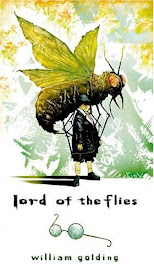1. "It is only shallow people who require years to get rid of an emotion. A man who is master of himself can end a sorrow as easily as he can invent a pleasure. I don't want to be at the mercy of my emotions. I want to use them, to enjoy them, and to dominate them." (page 112)
- Basil cried out the fact that "something has changed you [Dorian] completely" (112). The polar reactions Basil and Dorian had to Sibyl's death shows how Dorian have changed under Lord Henry's influences. The chasm between the painter and his ex-sitter is irresistibly widened. Dorian is no longer "simple, natural, and affectionate"; the new Dorian talks as if he had "no heart, [and] no pity" (122). The artist is still infatuated with Dorian's charm on the outside, so he naively believes that "it is all Harry's influence" - bad influence. Life is about making the right choice. If one cannot handle this well, he will come to his downfall sooner or later. Basil does not know that Dorian choose to be the kind of person he desires to be: "Basil would have helped him to resist Lord Henry's influence, and the still more poisonous influences that came from his own temperament" (122). From here we can see that the lad recognizes the kind of person he is turning into, but for some reasons, he refused to be redeemed. Dorian's own words can explain everything: "He [Basil] says things that annoy me. He gives me good advice" (60).
- I think Dorian's lonely and painful childhood had made him a seeker of attention and pleasure - he wants to get back the things he have lost. In his early years, he was dominated by his cruel grandfather; so now he wants to be dominated by himself, physically and emotionally.
- Why are we getting a feeling of deja vu? It is because in this discussion of Sibyl's death, Dorian used a lot of similar phases and arguments that Lord Henry have used before. From here we can see how profoundly Lord Henry have influenced Dorian in the past few month. The young lad's mind is completely dominated by Lord Henry's hedonistic and artistic theories.
- Dorian Gray is fanatically interested about the aesthetic elements of life so much that he is gradually turning into an art himself. He sees Sibyl's death as a romantic tragedy, and he feels happy for her because he thinks the girl "lived her finest tragedy" (113). Dorian will be satisfied as long as those artistic inspirations exist, no matter they are romantic or tragic. However, little does he know that the fragrance of arts will corrupt his heart and eat him up - his soul was given to the painting, which is a marvelous work of art. Dorian said that Sibyl "passed [...] into the sphere of art" (113); ironically, it is actually Dorian Gray himself, who "passed into the sphere of art". The real Dorian is in the painting - he is more likely to be an artwork, rather than a human.
1. ennui - [n.]
1> a feeling of utter weariness and discontent resulting from satiety or lack of interest; boredom
Ex. "He had absolutely nothing to do, almost died of ennui, and became a confirmed misanthrope." (113)
2. panegyric - [n.]
1> a lofty oration or writing in praise of a person or thing; eulogy
2> formal or elaborate praise
Ex. "The painter's absurd fits of jealousy, his wild devotion, his extravagant panegyrics, his curious reticence - he understood them all now, and he felt sorry." (120)















0 comments:
Post a Comment